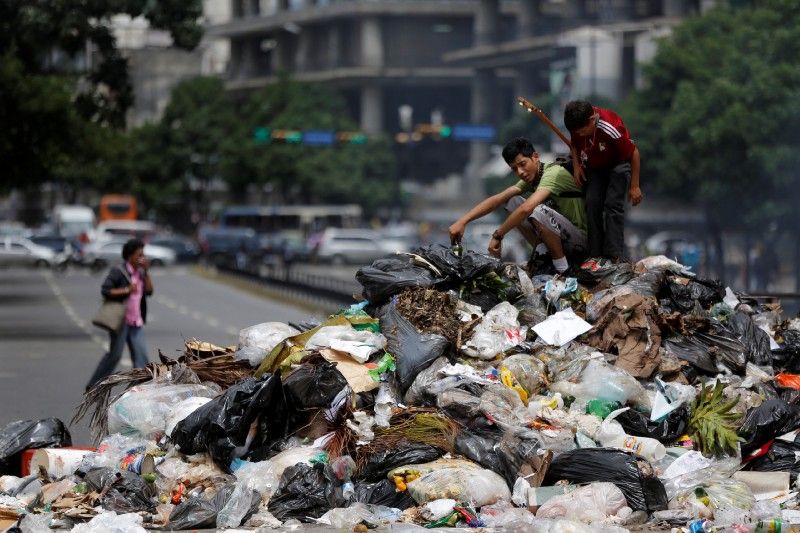April 17, 2018
For several months now, residents of half a dozen towns near Moscow have been protesting against the local government, and the reason is total garbage. Literally. Toxic fumes from local landfills have sent dozens to the hospital and hundreds into the streets. In a country where nearly 90 percent of people say they’d never protest anything, that’s a big deal. But it reflects a broader global trend: global politics is littered with trash these days.
Countries as far afield as Colombia, India, Ghana, the Kurdish Regional Government, and Italy have all recently seen protest or political intrigue about whether the garbage is being picked up and/or where it’s being dropped off. In Lebanon, a trash crisis back in 2015 even gave rise to a national opposition movement called “You Stink” which is looking to shape upcoming legislative elections.
Trash is, in a sense, inherently political. Removing a society’s waste is a basic public service and uncollected trash is an immediate visual — and olfactory — signal that the social contract either doesn’t exist or has broken down. When piles of uncollected trash stifled Naples in 2008 , the Neapolitan novelist Elena Ferrante wrote that it had exposed “the precariousness of every sort of order.”
Setting and preserving that order is only going to get harder in the coming years as poor and developing countries continue to grow. Greater prosperity, urbanization, and consumption all mean more trash as well. The UN says low income cities in Africa and Asia will produce twice as much waste in the next two decades as they do now. Latin America’s trash output is set to rise 60% over the same period.
This puts governments — particularly local ones in emerging economies — in a tough spot: increased prosperity simultaneously generates more waste while also fomenting broader expectations about governments’ ability to perform basic services like waste collection. Globally speaking, it’s garbage time for governments.
More For You
- YouTube
On Ian Explains, Ian Bremmer takes a look at the growing surge in global conflict and the ripple effects of so much violence, war, and armed struggle throughout the world.
Most Popular
Think you know what's going on around the world? Here's your chance to prove it.
French President Emmanuel Macron, German Chancellor Friedrich Merz, Ukrainian President Volodymyr Zelenskiy, U.S. Special Envoy Steve Witkoff and businessman Jared Kushner, along with NATO Secretary-General Mark Rutte and otherEuropean leaders, pose for a group photo at the Chancellery in Berlin, Germany, December 15, 2025.
Kay Nietfeld/Pool via REUTERS
The European Union just pulled off something that, a year ago, seemed politically impossible: it froze $247 billion in Russian central bank assets indefinitely, stripping the Kremlin of one of its most reliable pressure points.
Big global stories. Real conversations with world leaders. Our award-winning global affairs show, GZERO World with Ian Bremmer, goes beyond the headlines on the stories that matter most. Here’s a look back at the 10 most quotable moments from this year’s episodes.
© 2025 GZERO Media. All Rights Reserved | A Eurasia Group media company.
